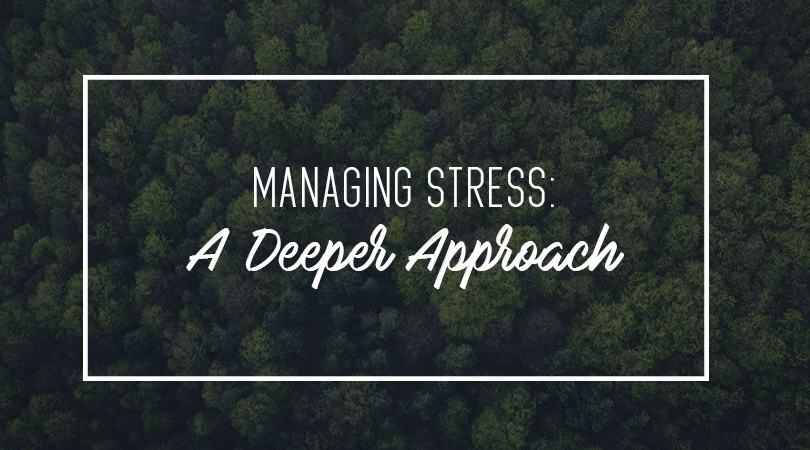Strategies for Managing Stress in the Workplace
Simple stress-busting tactics that ACTUALLY help
We get it. You have a never-ending to-do list that keeps growing by the minute. You support multiple executives. You have competing priorities. You are dealing with a conflict at work. All of this adds up to stress at work. Now, there’s stress—and then there’s the stress that only an executive assistant knows. Executive assistants face stressors that can be more intense than fellow colleagues realize, especially because you powerhouse, multitasking, magical EAs are the go-to person for multiple stakeholders.
Of course, you’re probably familiar with the many ways to manage stress in the workplace, but sometimes, the basics just don’t cut it for an executive assistant. You’re not basic. Your stress management shouldn’t be either.
Good news, we’ve got the top executive assistant tips to manage stress at work (and elsewhere) that go beyond taking a walk, listening to music or venting to a colleague.
Grounding to Manage Stress at Work
Grounding? What’s grounding? One of our favorite techniques for stress management! This is a technique sometimes used by victims of PTSD and anxiety sufferers. Grounding involves tuning in to your senses to help you achieve mindfulness. Think of it as a way to trick your mind into refocusing away from the stressors and onto the present moment. There are many different ways to ground yourself, and different approaches work for different folks. So even if you’ve tried it one way and it “didn’t work,” don’t give up just yet. Here are a few ways you can tap into your senses to get grounded and recenter:
- Think of a color, and look around you for 15-20 seconds, specifically looking for that color and call it out. You don’t have to physically speak it, but say it in your mind.
- Close your eyes and try to listen. What do you hear? Maybe your neighbor typing away. Do you hear people chatter around the corner? Take 10-15 seconds and just listen, calling out what you hear (again, you don’t have to speak it out loud).
- Use your hands and touch 3-4 items around you. Notice how they feel and describe the feeling in your hand. Is it a piece of fabric? Is it soft, hard, coarse?
- Identify one taste – sometimes you may want to grab a mint or something else, like a drink. Describe the taste in your mind.
- Take a deep breath through your nose and identify a few scents that you smell. If you can’t smell anything, find an object and place it under your nose. What do you smell? Only focus on that smell.
Aromatherapy to Decrease Stress at Work
So now we know your senses can help your brain reset and manage stress at work. Using essential oils is another easy way to engage your senses and relax into a stress-free zone at work. The key to it is determining what scent will help you feel less stressed out at work. There are a ton of essential oils that are known for relieving stress. We suggest starting with the usual suspects like lavender, lemongrass or orange. Try those, but don’t be afraid to venture out to other scents that appeal to you. We’ve even had success with rosemary mint!
So have fun with it. Try out a few different options and see what sticks. Some mental health practitioners use aromatherapy multiple times a week to reduce stress. And don’t worry, the scents won’t stink up the rest of your office.
Self-Care
So many studies show both physical and emotional self-care are essential to managing stress – regardless if that stress is personal or professional. Simply put, taking care of yourself is key to bettering your ability to manage stress at work.
Physical Self-Care
Did you know managing stress can sometimes be more important than decreasing or removing stress altogether? Life happens and your executive assistant stress probably isn’t going anywhere any time soon. Yeah, yeah, who has the time to exercise and eat well. Well, this about it this way: Your performance depends on it, and you don’t want to let yourself down. Take a look at some tips to support your physical self-care:
- Exercise: We don’t have to tell you this… But here’s a gentle reminder anyway. Exercising is crucial, even if it’s for 10 minutes. Some doctors and psychologists state that to maximize relief, try to be active for 30 minutes on most days. You can always break it up into shorter segments throughout the day.
- Eat well: Food can have a HUGE impact on how you feel throughout the day. Minimizing sugar and refined carbs when you are stressed is important because these foods will quickly lead to a crash – you may feel great at first, but just give it some time, and you will experience quite the opposite. Be sure to eat more Omega-3 fatty acids like salmon, herring and other fatty fish, seaweed, or walnuts. OR top off a morning smoothing with some flaxseed. Omega 3 fatty acids give your body a ton of energy and have great effects on brain and eye functions. Some studies also suggest that omega-3 fatty acids can protect against breast cancer, depression, ADHD, and other inflammatory diseases.
- Avoid caffeine: Ha, YEAH RIGHT, you may be thinking. Trust us, we didn’t like the thought of this either, but recent studies have shown that caffeine and stress both elevate cortisol levels–the stress hormone—so it’s important to be smart about the amount of caffeine you drink. A little can go a LONG way, and too much can just make it worse.
Emotional Self-Care
Managing stress is as much mental and emotional as it is physical. In a recent TED talk, Guy Winch, a licensed psychologist, explained that we should make physical and psychological health “more equal, like twins.” Here are our top emotional self-care tricks we use every time our mindset needs a makeover:
- Positive self-talk: This can be an effective stress management tool – but it can be tricky, especially for those out there who consider themselves realists, or even pessimists. It’s important to practice overcoming negative self-talk. The best approach is to identify negative thinking and negative self-talk, then turning that negative into a positive – almost like you are saying something positive to your colleague. A quick way to check yourself is to ask, Would you have just said that same negative thing to someone you care about? Say, your roommate, daughter, best friend or Oprah? Then you shouldn’t be saying it to yourself either!
- Meditation or mindfulness: Mindfulness is the ability to be completely present and aware of what is around us. When you are mindful, you aren’t thinking of the past or the future, but rather what’s truly happening right now. You’ll find your anxiety and stress can immediately decrease when you stop regretting the past or worrying about what could happen in the future. Mindfulness is a form of meditation – but there are a lot of other meditation techniques – it all depends on what works for you. Research is now suggesting that meditation has the potential for more than just temporary stress relief – so it’s not just for managing stress at work! Other types of meditation include loving-kindness (also known as Metta), body scan or progressive relaxation, breath awareness, and zen meditation. There are a lot of apps in the market (free and subscription-based) that provide guided meditation sessions. We love The Mindfulness App, Headspace, and Calm.
Take Action to Manage Stress at Work
EAs are all about results. Executive assistants are problem solvers and take an action-approach to so many tasks…Why would managing stress be any different? Try these fast-acting methods next time you need to take a break and create some breathing room:
- Reprioritization
- Removing/cleaning the clutter
- Saying “not right now”
Also, boundaries are your best friend. We’ll be honest, setting boundaries can be a challenge , especially for those of us who aren’t used to doing it. EAs tend to be the ones who say yes and want to take care of others in the office. It’s our natural response. However, setting boundaries can be well worth it. You are creating mutual respect and are communicating that your time and your abilities are valuable. Questions to ask yourself to help create boundaries include:
- Does this situation affect my executive immediately?
- What are the tangible and intangible benefits and costs of this situation if I say yes?
- Consider someone in your life that has strong boundaries – a person you respect. Would this person say yes or no, and why?
- Would you ask this of someone else?
Stress Can Lead to Burnout
It’s important to manage your stress at work so that it does not lead to burnout. Sometimes the basic techniques work, other times you may need to resort to other techniques. Regardless, it’s crucial to understand how to manage stress at work so that you can be the best version of yourself and the strategic business partner that you are to your executive(s).
Did you know that Executive Leadership Support is focusing on how to maintain balance and avoid burnout at our upcoming ELS Forum? Learn more about this and other valuable sessions during our live events.
Additional Resources:



